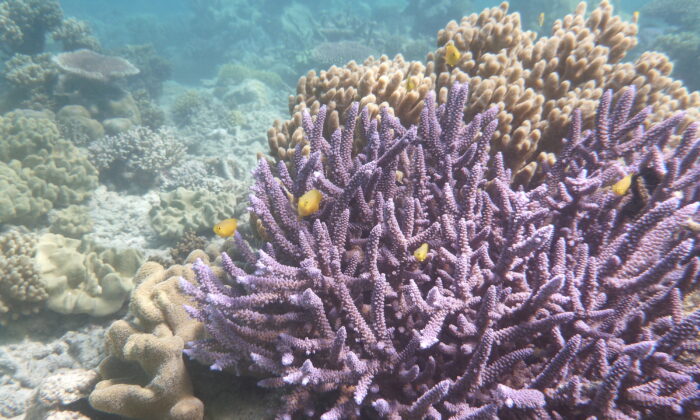
A recent decision by UNESCO to postpone classifying the Great Barrier Reef as in-danger has sparked a sense of urgency for governments to take action swiftly.
The United Nations’ cultural and scientific organization, UNESCO, has cautioned that Australia needs to ramp up efforts in land clearing and addressing climate change in order to protect the Great Barrier Reef.
Although the World Heritage-listed reef has been temporarily excluded from the in-danger list, UNESCO has highlighted that the Reef is on track to experience its fifth mass bleaching event in just eight years.
“The state party should be encouraged to establish more aggressive emission reduction targets that align with the goal of limiting global temperature rise to 1.5 degrees Celsius above pre-industrial levels,” UNESCO stated in a preliminary decision on June 25.
“It is evident that the reef remains at significant risk, and immediate and consistent action is crucial to enhance the reef’s resilience in the face of a rapidly changing climate.”
Despite these warnings, Australian reef expert Peter Ridd expressed doubt about the situation, dismissing it as “fearmongering.”
“Considering that the Great Barrier Reef currently boasts more coral than at any point since records began in 1985, it’s difficult to argue that the reef is in imminent danger and requires saving,” he shared with The Epoch Times.
“This is despite supposedly enduring catastrophic bleaching events five times since 2016.”
Ridd pointed out that the reef had a record amount of coral in 2022/23—twice the amount compared to 2012.
Even the fastest-growing coral species take five to 10 years to reach maturity, according to Mr. Ridd.
However, environmental organizations view UNESCO’s decision as a cause for concern.
In a statement, the Australian Marine Conservation Society (AMCS) expressed disappointment in being placed on “probation” for the reef’s management.
AMCS Great Barrier Reef campaign manager Lissa Schindler emphasized that Australia must provide an update on the reef’s health within seven months, indicating that the reef is still at risk.
“Over the past decade, the World Heritage Committee has outlined the necessary steps for Australia to enhance reef protection and prevent an ‘in-danger’ designation,” she remarked.
“While the Albanese government has made more commitments than its predecessor, Australia must do more to address climate change and reduce water pollution in reef waters.
“The request for a progress report next year underscores UNESCO’s concerns regarding this matter.”





